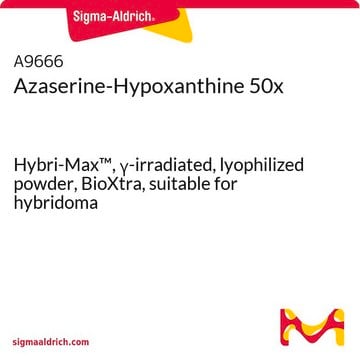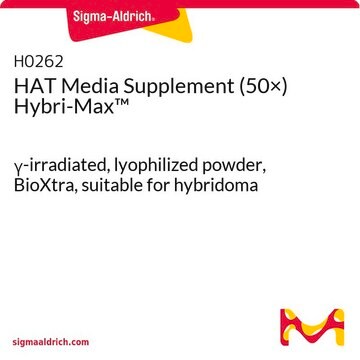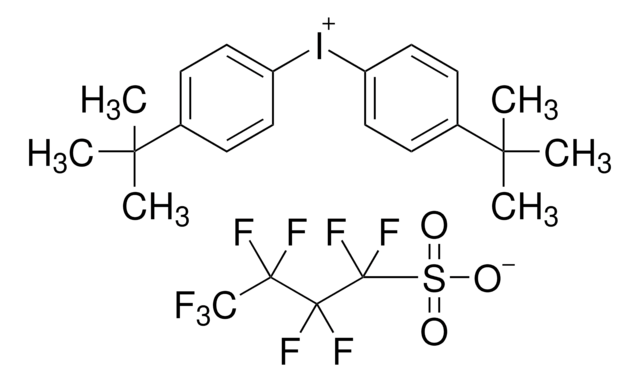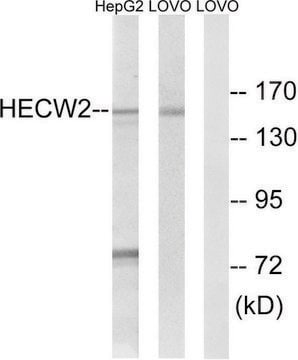A1164
Azaserine
Hybri-Max™, γ-irradiated, 50x, lyophilized powder, BioXtra, suitable for hybridoma
Synonym(s):
O-Diazoacetyl-L-serine
About This Item
Recommended Products
grade
Hybri-Max™
Quality Level
sterility
γ-irradiated
product line
BioXtra
form
lyophilized powder
technique(s)
cell culture | hybridoma: suitable
impurities
endotoxin, tested
antibiotic activity spectrum
fungi
Mode of action
enzyme | inhibits
storage temp.
−20°C
SMILES string
N[C@@H](COC(=O)C=[N+]=[N-])C(O)=O
InChI
1S/C5H7N3O4/c6-3(5(10)11)2-12-4(9)1-8-7/h1,3H,2,6H2,(H,10,11)/t3-/m0/s1
InChI key
MZZGOOYMKKIOOX-VKHMYHEASA-N
Looking for similar products? Visit Product Comparison Guide
General description
Application
Biochem/physiol Actions
Reconstitution
Legal Information
Signal Word
Danger
Hazard Statements
Precautionary Statements
Hazard Classifications
Acute Tox. 3 Oral - Carc. 2
Storage Class Code
6.1C - Combustible acute toxic Cat.3 / toxic compounds or compounds which causing chronic effects
WGK
WGK 3
Flash Point(F)
Not applicable
Flash Point(C)
Not applicable
Personal Protective Equipment
Certificates of Analysis (COA)
Search for Certificates of Analysis (COA) by entering the products Lot/Batch Number. Lot and Batch Numbers can be found on a product’s label following the words ‘Lot’ or ‘Batch’.
Already Own This Product?
Find documentation for the products that you have recently purchased in the Document Library.
Our team of scientists has experience in all areas of research including Life Science, Material Science, Chemical Synthesis, Chromatography, Analytical and many others.
Contact Technical Service










